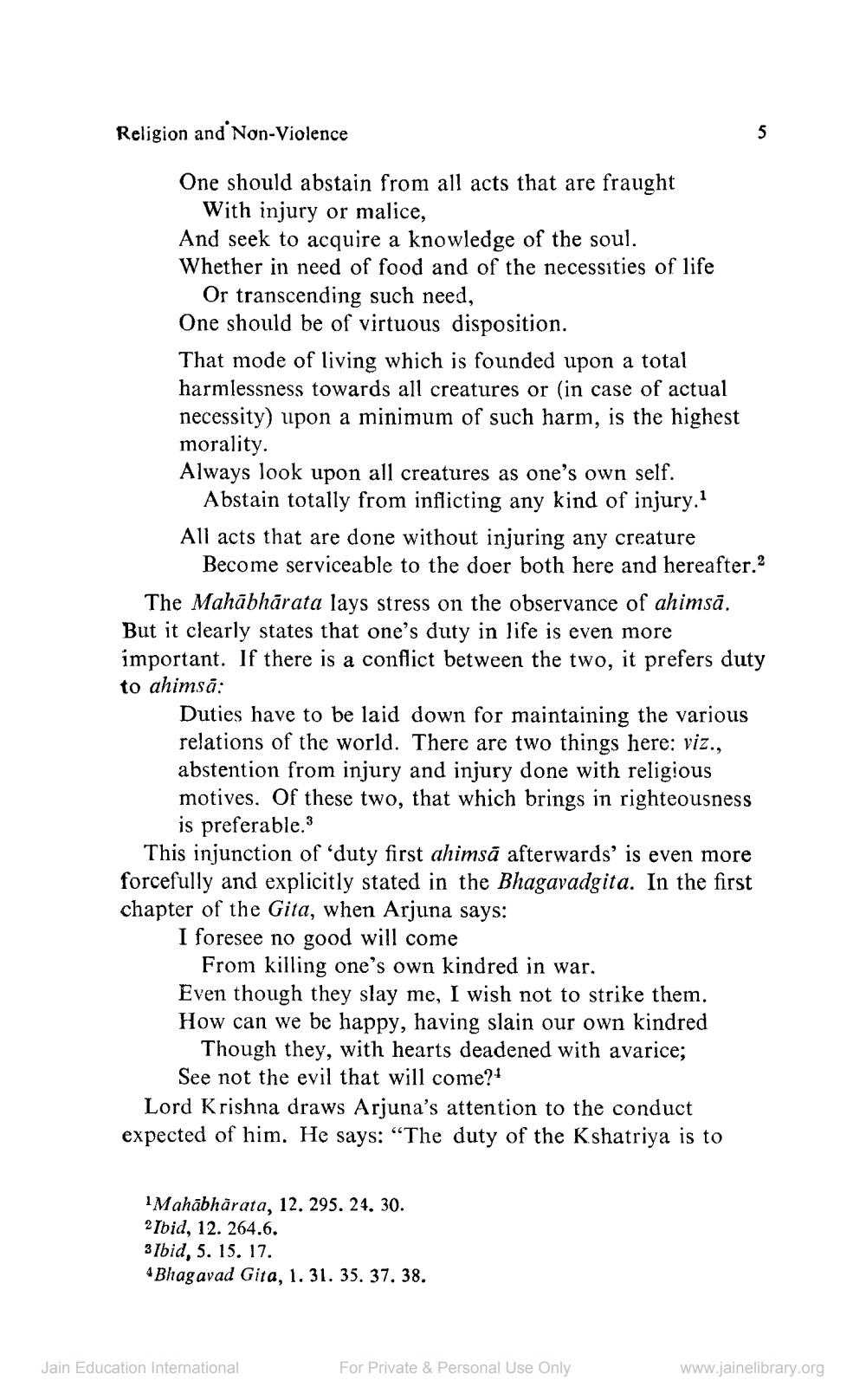________________
Religion and Non-Violence
One should abstain from all acts that are fraught
With injury or malice, And seek to acquire a knowledge of the soul. Whether in need of food and of the necessities of life
Or transcending such need, One should be of virtuous disposition. That mode of living which is founded upon a total harmlessness towards all creatures or (in case of actual necessity) upon a minimum of such harm, is the highest morality. Always look upon all creatures as one's own self.
Abstain totally from inflicting any kind of injury." All acts that are done without injuring any creature
Become serviceable to the doer both here and hereafter.? The Mahābhārata lays stress on the observance of ahimsā. But it clearly states that one's duty in life is even more important. If there is a conflict between the two, it prefers duty to ahimsa:
Duties have to be laid down for maintaining the various relations of the world. There are two things here: viz., abstention from injury and injury done with religious motives. Of these two, that which brings in righteousness
is preferable.3 This injunction of duty first ahimsă afterwards' is even more forcefully and explicitly stated in the Bhagavadgita. In the first chapter of the Gita, when Arjuna says:
I foresee no good will come
From killing one's own kindred in war. Even though they slay me, I wish not to strike them. How can we be happy, having slain our own kindred
Though they, with hearts deadened with avarice; See not the evil that will come?' Lord Krishna draws Arjuna's attention to the conduct expected of him. He says: “The duty of the Kshatriya is to
Mahābhārata, 12. 295. 24. 30. 2 Ibid, 12. 264.6. 3 Ibid, 5. 15. 17. Bhagavad Gita, 1. 31. 35. 37. 38.
Jain Education International
For Private & Personal Use Only
www.jainelibrary.org




